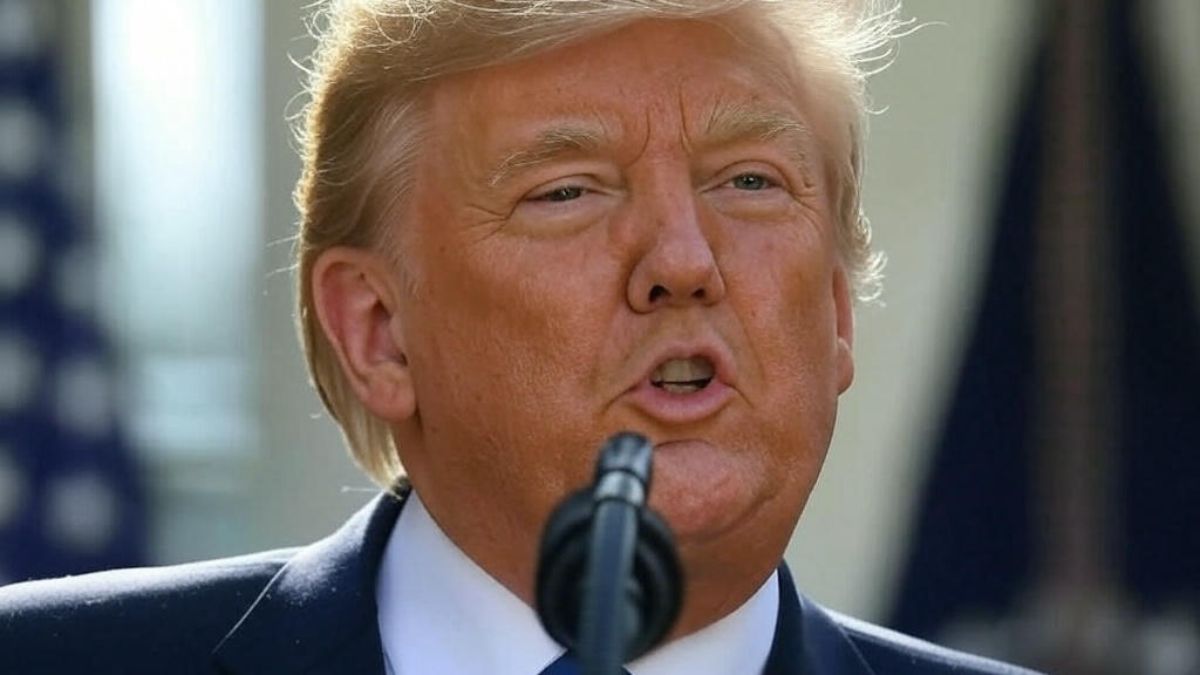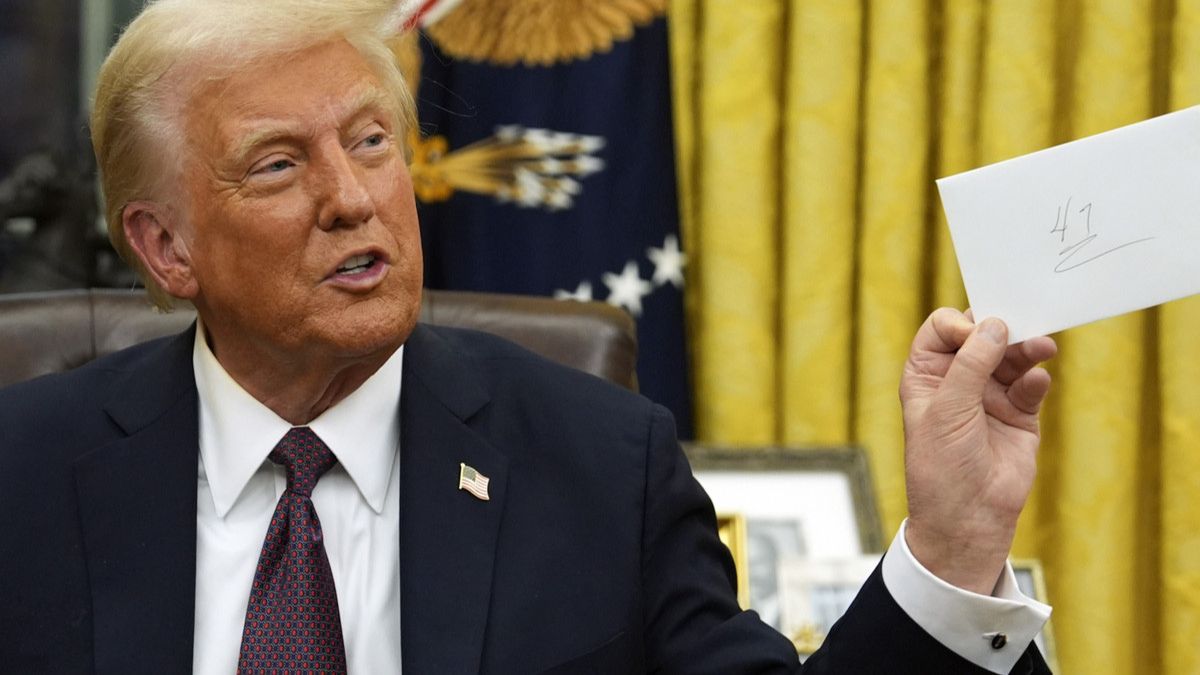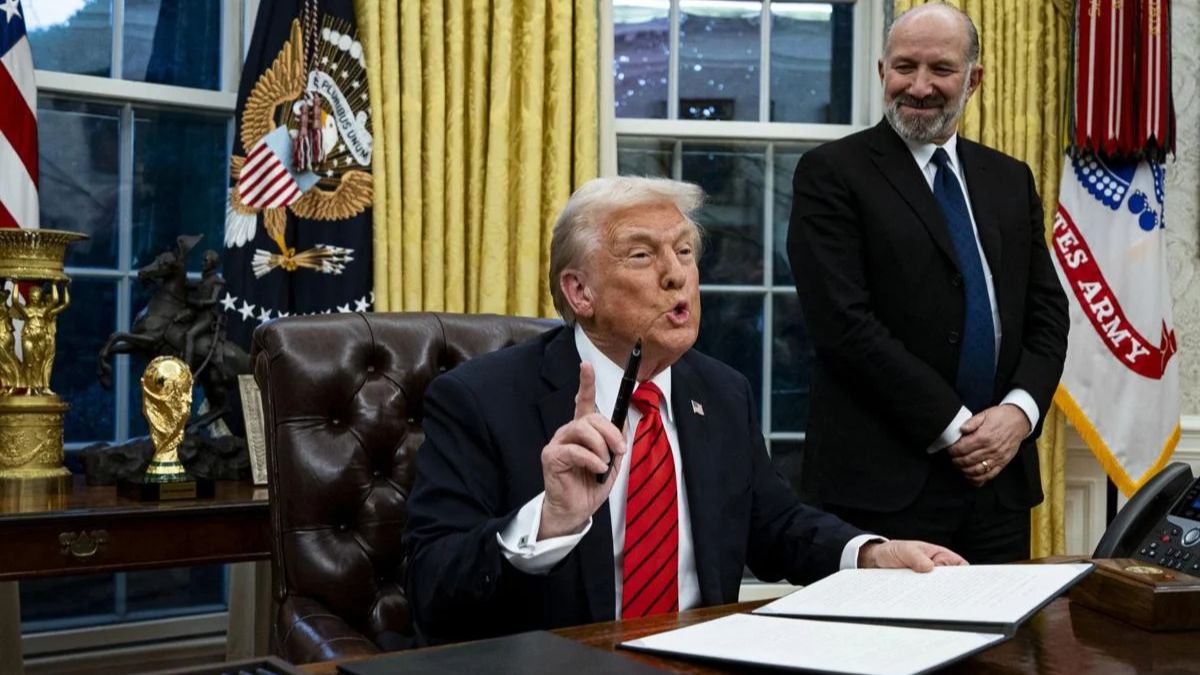Donald Trump, never one to shy away from a fight, real or imagined, has once again embraced his self-proclaimed “favorite word”: tariffs. Across the Atlantic, the European Commission isn’t buying the bravado. Instead, it calls his trade policies “economic self-harm.” (A fair assessment, given the last time Trump went tariff-crazy, American consumers ended up footing the bill.)
Now, the EU is bracing for impact. Trump’s administration is reportedly considering a sweeping 20% tariff on all EU goods entering the U.S. by early April. The move, if it happens, would send the cost of European products soaring. Whether this will be a targeted strike on select countries or a blanket attack on the entire EU remains unclear. What is clear, however, is that European leaders are done playing nice.
Europe’s Balancing Act: Retaliate Without Self-Destructing
Brussels finds itself in an awkward position. It needs to push back hard enough to be taken seriously but not so hard that it shoots itself in the foot. The EU already endured Trump’s steel and aluminum tariffs, as well as his targeted attacks on the European automotive industry. German carmakers, in particular, have been left rattled by Trump’s obsession with “unfair” trade. The EU has options, but none come without risk.
Option 1: Strike at U.S. Services
One of Brussels’ most potent weapons? Restricting American dominance in the service sector. The EU could hit tech giants where it hurts, limiting intellectual property rights for U.S. companies operating in Europe. Imagine a Europe where Apple and Google can’t charge for cloud services or software updates. That’s a nightmare scenario for Silicon Valley and a very real possibility.
Even Elon Musk’s Starlink satellite network isn’t safe. European lawmakers are reportedly discussing whether to ban it from bidding on government contracts. Considering how often Musk inserts himself into geopolitical affairs, that might be less about trade and more about damage control.
Option 2: Retaliatory Tariffs: A Symbolic Slap or Something More?
The EU has played the tariff game before targeting products that scream “Made in America.” (Harley Davidson bikes, Levi’s jeans, and bourbon whiskey, to name a few.) But this time, it may have to dig deeper. With those industries already suffering, new tariffs will need to hit different sectors.
The problem? Every retaliatory measure requires agreement from a qualified majority of EU nations. And when national interests collide, unity is hard to find. France, for example, wants to drop tariffs on bourbon whiskey to shield its own wine industry from U.S. retaliation. (Because, apparently, Trump has a long memory and a short fuse.)
The EU’s “Trade Bazooka”: Will Brussels Go Nuclear?
In 2023, the EU created the Anti-Coercion Instrument (ACI), a tool designed to counter economic bullying. Initially a response to China’s blockade of Lithuanian goods (over its support for Taiwan), the ACI is now being reconsidered for use against Trump’s trade war.
Dubbed the “trade bazooka,” the ACI could unleash a range of countermeasures if Trump’s tactics are deemed “economic coercion.” Possible responses include limiting U.S. banks in Europe, revoking American patents, or restricting revenue streams for U.S. online services.
Some experts even suggest the EU could target individuals “connected to the government.” That’s right—people close to Trump, including his favorite billionaire cheerleader, Elon Musk, could find themselves in the crosshairs.
The Big Tech Crackdown: America’s Digital Empire Under Siege
Beyond tariffs, the EU has another ace up its sleeve: its powerful regulatory framework. Under the Digital Services Act (DSA) and Digital Markets Act (DMA), U.S. tech firms already face tough scrutiny in Europe.
Trump and his allies claim these laws function as backdoor tariffs, creating massive financial burdens for American companies. Brussels, of course, sees it differently. In fact, there’s growing chatter that the EU could use the ACI to escalate enforcement against platforms like Musk’s X (formerly Twitter).
The EU is already investigating whether X has been promoting far-right content ahead of European elections. If Brussels decides to act, potential penalties could include fines, advertising bans, and even restrictions on paid subscriptions. A move like that wouldn’t just hurt Musk it would set a precedent for how the EU treats all American tech giants.
Who Really Pays the Price?
While Trump flexes his “America First” rhetoric, let’s not forget who bears the burden of these economic brawls: ordinary citizens. American consumers will pay more for European goods. European industries, especially those reliant on U.S. exports, could suffer major losses. And if this escalates into a full-blown trade war, businesses on both sides of the Atlantic will face uncertainty and chaos.
In the end, tariffs aren’t weapons of strength. They’re taxes, plain and simple. And history tells us one thing: whenever politicians start playing with tariffs, regular people always lose.
The real question isn’t whether Trump will go through with his threats it’s whether the EU is willing to fight back hard enough to make him regret it.




